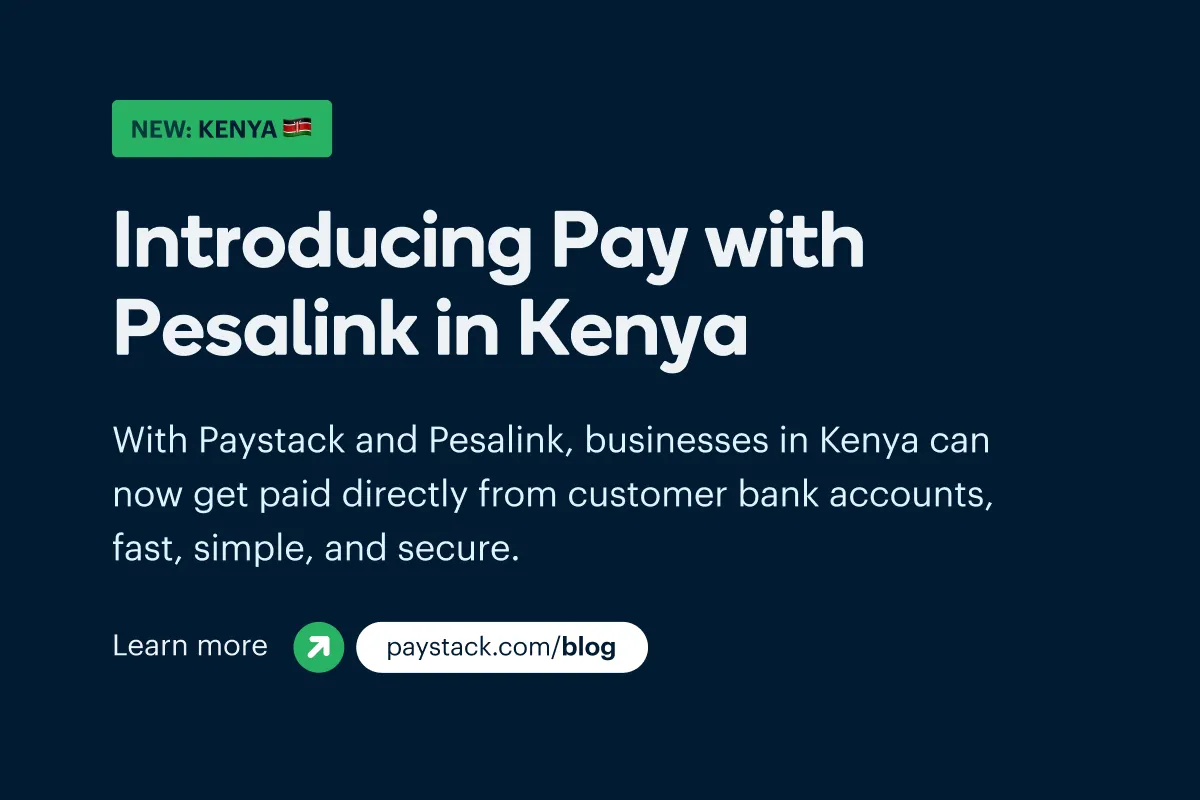- 👨🏿🚀TC Daily
- Posts
- Kenya switches off VAT for Kenswitch
Kenya switches off VAT for Kenswitch
Cool Stuff: A Traaple for travel lovers.


Good morning. ☀️
This week on Francophone Weekly, we look at how CDC-CI Capital is emerging as one of Côte d’Ivoire’s most important institutional backers and how its recent bets on Djamo and Julaya signal a new era for Francophone Africa’s tech ecosystem. You do not want to miss this one.
Sign up here to receive the next dispatch in your inbox.
Let's dive in.
Startups
Kenswitch wins tax battle, and it’s a game-changer for payment switches

On October 24, Kenya’s Tax Appeals Tribunal ruled in favour of Kenswitch, the country’s biggest independent payments switch. It struck out Kenya Revenue Authority (KRA)’s demand for KES $321,856 in value-added tax (VAT). The Tribunal ruled that Kenswitch’s core business, which includes routing payments, authorising ATM withdrawals, and settling card transactions, falls within the meaning of financial services and is exempt from value-added tax (VAT).
Here’s how we got here: The KRA had argued that payment switching was purely a tech-based business, since Kenswitch uses licenced platforms like EFT Corporation and ACI Worldwide, and should pay VAT. The tribunal rejected that, pointing out that what matters is what the company does, not the technology it uses.
Why this matters: The Tribunal’s ruling sets a critical tax precedent for payment switches and fintech operators across Kenya, such as PesaLink and Switchlink Africa, which could rely on this judgment when facing VAT challenges.
Sounds… familiar? Just a few weeks ago, fintech firm Pesapal won a similar battle when Kenya’s High Court overturned a tribunal ruling and declared Pesapal’s merchant commissions VAT-exempt. The court made it clear that digital platforms that handle money are financial service providers, rather than mere IT companies.
The bigger picture: This ruling could reshape how tax authorities treat fintechs. More digital payments players may suddenly adopt the “financial services” label to gain access to tax advantages. That would mean lower costs and potentially lower fees for users.
Powering businesses across Africa to pay and get paid in local currencies.

With Fincra, businesses, startups, global enterprises and platforms can easily send and receive payments in multiple African currencies, empowering trade, and growth across the continent. Create your account in 3 minutes.
Banking
Zenith Bank is gearing up to enter East Africa

Zenith Bank, one of Nigeria’s biggest banks, is in advanced talks to acquire Kenya’s Paramount Bank, a mid-tier lender with eight branches, awaiting approvals pending from regulators in both countries. The deal is expected to close by January 2026, according to Business Daily Africa.
But why now? Kenya’s banking sector is in the middle of a shakeup. The Central Bank of Kenya is raising minimum core capital tenfold from $7.7 million to $77 million by 2029, a leap that’s already pushing mid-tier lenders toward mergers, fresh capital, or outright acquisitions. Paramount Bank, with its core capital at $20 million, is one of the institutions under pressure, making Zenith’s arrival feel like perfect timing.
Here’s the fun part: Zenith’s move would make it the fourth Nigerian tier-1 bank to enter Kenya, after United Bank for Africa (UBA), Guaranty Trust Bank (GTBank), and Access Bank.
Not just East Africa: Zenith Bank recently a closed a $226 million hybrid capital raise, boosting its capital base by 160% and fuelling expansion into Côte d’Ivoire, Paris, and eventually eight more Francophone markets.
For most of its history, Zenith Bank has expanded slowly and conservatively, with only a handful of African subsidiaries like Ghana, Sierra Leone, Gambia, South Africa, and one European outpost in the UK. Compared to rivals like UBA or Access, Zenith has never been the aggressive continental sprinter; it has been the bank that prefers deep market penetration over wide footprints. This moment feels different. Could Nigeria’s macro pressures be behind the lender's spontaneity?
Enjoy smooth payments while you're home this Detty December

Coming home for Detty December? Enjoy smooth payments every day with your Paga US account. Send money to any bank instantly. Don’t miss out, get started now.
Venture Capital
Nigeria launches $35,000 equity-free fund for startup builders in campuses

In Africa’s tech ecosystem, insiders have always toyed with one question: what happens when players outside traditional venture capital (VC) and private equity (PE) firms step into the business of backing tech startups? Or more broadly, what happens when organisations that have never been central to the venture ecosystem suddenly take a visible interest in it?
It now seems the Nigerian government is testing both theories. After stepping into its new role as a limited partner (LP) by investing in Ventures Platform’s $64 million Fund II through the Investment in Digital and Creative Enterprises (iDICE) programme, it appears ready to evolve again.
This time, it wants to act as something closer to an ecosystem builder. It has opened applications for a ₦50 million ($35,000) equity-free student venture capital grant. Young founders will also gain access to mentorship and a one-year Gemini Pro licence. It is an unusual move precisely because the capital is coming from a source the ecosystem has rarely seen operating at this stage.
Last Thursday at Ventures Platform’s Prosperity Summit, panellists talked about a persistent frustration. Participation from non-traditional players, including conglomerates, telecom firms, and large institutions, is improving but still painfully slow. Buyers are slow, too. Everyone agrees the ecosystem needs more people at the table, but the rate of institutional involvement has not caught up with the ambition.
Two trends did stand out at the event. Development finance institutions (DFIs) are steadily backing African funds, and successful founders are returning to invest in ventures. Corporates and banks are warming up as well. Standard Bank, for example, has invested in 16 funds across PE and venture capital, according to a director, most recently backing Planet42, the South African car subscription startup, with $16 million in 2024.
The student grant pushes this idea further by introducing capital from a source the ecosystem is not accustomed to seeing on the frontline. It makes us wonder: how big should iDICE’s ambitions be for campus-born ventures, and is there room for true returns? Or should expectations be tempered? Incentives matter.
For the government, the incentive may be less about immediate yield and more about nurturing the next generation of tech builders. While this is a commendable plan, execution and benchmark-setting for innovation will be key.
Paystack introduces Pay with Pesalink in Kenya!

With Pesalink and Paystack, businesses in Kenya can now get paid directly from customer bank accounts. Learn more here 👉
COOL STUFF!
If you put TripAdvisor, Google Reviews, and Traveltok in one pot, the resulting dish would be Traaple. Travelling in Africa requires spending ages across Instagram Reels, Travel TikTok, Google Reviews, and TripAdvisor, trying to find a combination of deals that work for you, information that changes in weeks, and reviews from people who visited the destination four years ago.
Shout-out to Selase Kove-Seyram.
—Zia
CRYPTO TRACKER
The World Wide Web3
Source:

Coin Name | Current Value | Day | Month |
|---|---|---|---|
| $90,140 | - 5.30% | - 15.77% | |
| $3,013 | - 5.47% | - 22.89% | |
| $909.49 | - 2.58% | - 16.87% | |
| $135.73 | - 3.24% | - 27.43% |
* Data as of 06.30 AM WAT, November 18, 2025.
AI in a Nutshell gives you weekly AI knowledge and insights

Want to stay close to AI but hate long reads? AI in a Nutshell gives you weekly AI knowledge, news, tools, and insights - short, smart, and fun. Perfect for curious (but lazy) readers who still want to stay ahead. Subscribe here.
Opportunities
- The Breez Tech worldwide developer challenge is open to developers across Africa, with active communities in cities such as Lagos, Nairobi, Accra, Kampala, Johannesburg, Abuja, Douala, and Goma, among others. The competition invites participants to integrate Bitcoin into open-source apps using the Breez SDK – Nodeless for a share of the $25,000 prize pool and opportunities including residencies at DraperU and PlebLab. Submissions close December 16; winners will be announced in January. It's #TIME2BUILD. Register here.
- Every startup has a story worth hearing. My Startup in 60 Seconds by TechCabal offers founders a one-minute spotlight to share their vision, challenges, and achievements. Beyond visibility, it connects you to investors, customers, and Africa’s tech ecosystem. Apply to be featured or explore other TechCabal advertorial opportunities. This is a paid opportunity.
- Founder Institute Lagos, the Lagos chapter of the world’s largest pre-seed accelerator, is set to graduate its 12th Cohort at a physical ecosystem gathering themed “Build. Impact. Scale: Fueling Africa’s Growth through Scalable Innovation.” The event will celebrate 18 founders who have completed a rigorous and rewarding 14+ week virtual accelerator program, joined by operators, investors, and key ecosystem players. Register here to attend.

- Elon Musk’s trillion-dollar paycheck depends on the markets he’s losing
- Meet CoreWeave, the AI industry's ticking time bomb
- Follow The Money: Banks ride Nigeria’s digital payment boom, net ₦514bn in nine months
- Ask An Investor: How Wema Bank, a $552 million bank, is investing in startups from all sectors
Written by: Opeyemi Kareem and Emmanuel Nwosu
Edited by: Ganiu Oloruntade
Want more of TechCabal?
Sign up for our insightful newsletters on the business and economy of tech in Africa.
- The Next Wave: futuristic analysis of the business of tech in Africa.
- TC Scoops: breaking news from TechCabal
- Francophone Weekly by TechCabal: insider insights and analysis of Francophone’s tech ecosystem
P:S If you’re often missing TC Daily in your inbox, check your Promotions folder and move any edition of TC Daily from “Promotions” to your “Main” or “Primary” folder and TC Daily will always come to you.

How did you find today's edition of #TCDaily? |



